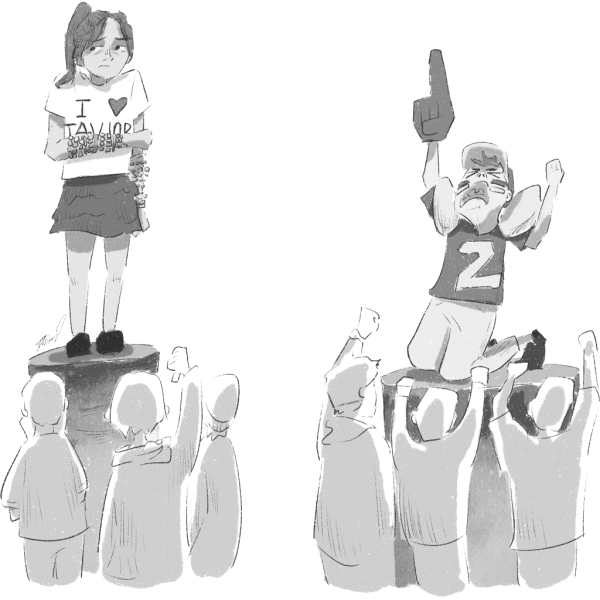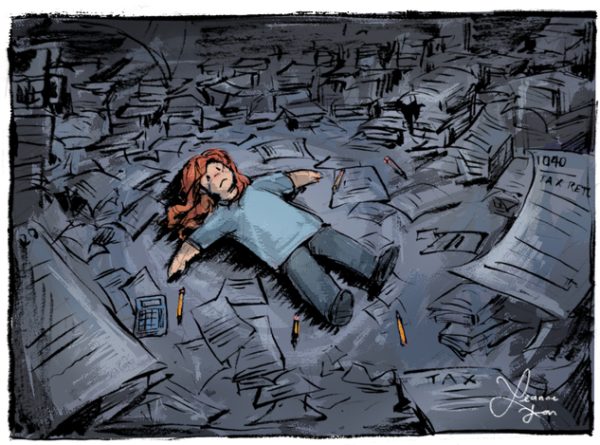New books to replace TKM, OMM lack real literary significance
February 18, 2022
In response to community calls for the diversification of literature taught in school, freshmen will no longer read To Kill a Mockingbird and Of Mice and Men as assigned novels.
Let me begin by saying that the time for new literature is long overdue. TKM and OMM are certainly valuable books: They are relatively short, simple pieces with clear themes and literary devices. They’re also books everyone is familiar with.
But they are also overused pieces of literature not just at Westview, but across the nation as a whole. And I agree that it’s time for something different.
These “classic” novels are taught in our classrooms because they belong to a Core Literature list—a list of district-approved books corresponding to each grade level.
I think that it’s generally a good thing that the school is stepping away from these. For me, the way I learned to analyze literature through TKM and OMM was certainly eye-opening, but not something that couldn’t be replicated with other pieces of literature, literature that doesn’t unnecessarily offend or make students feel uncomfortable.
A partial contribution to the shift in curriculum is the novels’ use of the N-word, while both novels are written by white authors.
So in response to calls for more diverse perspectives, the Poway Unified School District (PUSD) approved three new books to be taught in ninth grade: All American Boys, Clap When You Land, and American Like Me, all written or co-written by nonwhite authors. I’m glad to see that more attention is being brought in schools to a more diverse range of writers.
Just to clarify, teachers are not required to teach any of these books.
But I took some time to read all three novels, and all of them are focused on subjects that deal with race: All American Boys is about the effects of police brutality on a community, Clap When You Land celebrates multiculturalism, and American Like Me focuses on the consequences of the lack of diversity in American representation as well as its effects on self-identity.
While these are certainly important subjects to be teaching, I am concerned that the district’s decision on these books (which are all Young Adult novels) is made solely with race in mind rather than teaching students how to think, analyze, and write a thesis with defensible commentary, which is what I would consider the purpose of the freshman English classes. The subject of the themes we choose should not be relevant so long as the curriculum is catered towards helping students learn literary analysis and how to write a structured essay.
In my experience, TKM and OMM did not teach me that racism was bad or shed light on the brutal nature of bigotry, but rather taught me how to look at a passage and break it down for its symbols, and put all of it together into a main thesis, sub-theses, and flesh it out through analytical commentary. The specific themes of those books, to my knowledge, did not have a significant impact on the way I learned the more general skills of analysis.
If we are to learn about the nature of racial divide and its history, we should be looking to history courses rather than freshman English, a class that deals with fiction. To me, it certainly makes more sense to teach those subjects in a setting where students can interpret new knowledge as facts rather than symbols.
The decisions made around choosing new books for freshman English, at the district level, should not be based on the themes or insights of the book.
The fact that these books have such common themes both limits the scope of literature taught in these classes and unnecessarily shifts their focus.
Still, while I have concerns about the ironically undiversified themes of the newly approved books, moving away from the “classic” novels that have been taught unwaveringly for decades is a step in the right direction.
It is certainly nice for students and teachers to have a consistent set of books, whereby older students who are familiar with the subject can help younger students. In addition, teachers can gain mastery of a small focus of literature.
But it’s also about time that we did something new, especially if students’ uncomfortability with some of the subjects in the book gets in the way of effective learning.







